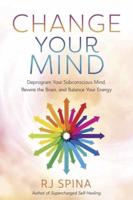Publisher's Synopsis
Cannabidiol (CBD) is an abundant, non-psychoactive, plant derived cannabinoid (phytocannabinoid) whose stereochemistry was first described in 1963 by Mechoulam and colleagues. Isolation of the chemical structure of CBD revealed it to be a classical cannabinoid closely related to cannabinol and tetrahydrocannabinol (THC). A recent review of the safety and side effects of CBD concluded that CBD appears to be well tolerated at high doses and with chronic use in humans, and thus has the potential to be taken safely into the clinic. Indeed, CBD is one of the active ingredients of the currently licensed medication.CBD oil is the in-thing right now.It's touted as a natural remedy with a wide range of therapeutic, health and wellness benefits. Thanks to its antipsychotic tendencies, it is also used widely for recreational purposes. Like any cannabis-related product, there's a lot of debate around CBD oil, but that hasn't stopped it from burgeoning to become a $270 million market. And with the Farm Bill 2018 already in force, the best of CBD is yet to come.Controversial as it might be, the CBD popularity wave has gained increased traction across the country and beyond.Tons of CBD oil products have found their way into the mainstream market, including CBD vaping cartridges, lip balms, tinctures, and even cosmetics. The pet industry just recently entered the fray, and promises to become one of the biggest consumers of CBD products. Although extensive research has not been done on the subject matter, some of the recent scientific studies seem to suggest that CBD oil has huge potential in treating or managing an array of chronic ailments, such as epilepsy, depression, migraines, cancer, anxiety, and stress.But, what is CBD oil? Where does it come from? Is it legal to sell market or use it? Is it safe to use it, and how do you use it? What's its market and future look like? This ultimate guide is dedicated to all things you need to know about CBD oil in 2019, whether you're a consumer, cannabis farmer, prospective investor, dispenser or anyone in between.What does the science say?Not much, as far as humans are concerned at least not yet. The vast majority of studies have been on animals, as of yet, and there are few high-quality studies on humans. Even the oil's effect on pain something that CBD oil is popularly used for isn't proven. "The studies available are small or not well designed. "There's a lot of religion out there, but not a lot of data."A research which was recently published in The New England Journal of Medicine, is beginning to provide that much-needed data in the field of epilepsy research. In a landmark multinational randomized double-blind study for a treatment-resistant form of the condition, subjects taking an oral solution of 20 mg CBD per kilogram of body weight for 14 weeks, along with standard treatment, experienced a 42 percent reduction in drop seizures (the muscles go limp). Those taking a 10 mg CBD per kilogram of body weight saw a 37 percent decrease; patients who got a placebo saw a 17.2 percent decrease. The mechanism hasn't quite been worked out yet, though there's some evidence that a receptor known as GPR55 may be critical for the anti-seizure effect.








